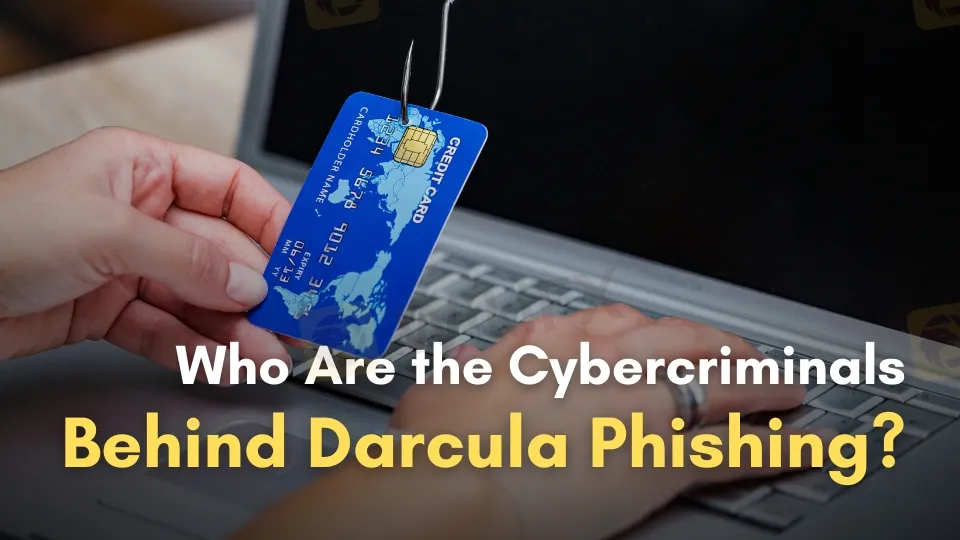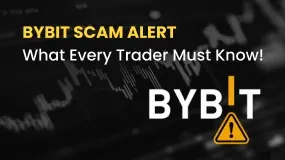简体中文
繁體中文
English
Pусский
日本語
ภาษาไทย
Tiếng Việt
Bahasa Indonesia
Español
हिन्दी
Filippiiniläinen
Français
Deutsch
Português
Türkçe
한국어
العربية
Who Are the Cybercriminals Behind the Darcula Phishing Network?
Abstract:Norwegian researchers uncover Darcula, a phishing-as-a-service operation with 884,000 stolen cards, linking scammers to luxury goods and global crime rings.

A team of Norwegian cybersecurity specialists has revealed a sprawling cybercrime syndicate, exposing the sophisticated fraud tactics employed by the scammers orchestrating it. Their findings have unveiled a highly structured phishing-as-a-service scheme called Darcula, which has ensnared countless victims worldwide.
Operating out of Oslo, the Mnemonic research group launched their probe after detecting a spike in fraudulent delivery-related messages targeting global users in 2023. By engaging with one of these deceptive links, the researchers uncovered a platform engineered to equip cybercriminals with tools for executing widespread phishing campaigns. Known as Darcula, this platform, active since at least 2023, grants access to over 20,000 domains and 200 phishing templates mimicking prominent brands like postal services, tax authorities, telecom companies, and airlines.
Though prevalent on the dark web, Darcula evaded detection until Mnemonic‘s ethical hackers penetrated its covert admin hub. Their report describes this hub as the nerve center of the operation, displaying live updates of victims’ personal data—such as credit card details, names, and addresses—as they were entered. This formed part of a vast network where phishing links were clicked over 13 million times, resulting in the theft of 884,000 credit cards by approximately 600 fraudsters.

Through reverse engineering, Mnemonic identified a critical element of the scheme: a toolkit dubbed ‘Magic Cat.’ This tool allowed scammers to track stolen credit card information in real time and engage with victims to extract additional data, such as PINs. Magic Cat offered features like ready-to-use templates for impersonating numerous global brands, making it a user-friendly resource for fraudsters worldwide.
As their investigation deepened, Mnemonic traced the Darcula network to Chinese cybercriminals, identifying the full name, phone number, and city of a key figure behind the operation. The Norwegian Broadcasting Corporation (NRK) joined the effort, uncovering over 40,000 chat exchanges among the scammers. These conversations revealed the criminals bragging about their opulent lifestyles, fueled by illicit gains.
One fraudster showcased a ring valued at over £21,000, while another flaunted luxury Valentino footwear. Receipts showed some had spent up to £14,000 on personal purchases, with images depicting sports cars and high-end dining experiences, all financed through stolen credit card data.
Despite presenting the hackers with evidence of their crimes, Mnemonic and NRK encountered defiance and subtle threats from the perpetrators.
The investigation confirmed that the Darcula network and its Magic Cat toolkit remain active, with ongoing enhancements making the phishing operations increasingly effective.
Mnemonics report emphasized that their original aim was to investigate active phishing campaigns, but their work uncovered a far larger and more intricate web of fraudsters operating a robust ecosystem designed to exploit globally recognized brands. They identified hundreds of thousands of victims and thousands of licenses sold for Magic Cat, highlighting a rising trend in cybercrime.
This investigation has not only illuminated the scope of this criminal enterprise but also offered a vital glimpse into the lucrative realm of cyber fraud, where perpetrators live extravagantly at the expense of unsuspecting victims. Despite the researchers‘ efforts, Darcula and its tools continue to flourish, emphasizing the persistent danger posed by cybercriminals lurking in the dark web’s shadows.

Disclaimer:
The views in this article only represent the author's personal views, and do not constitute investment advice on this platform. This platform does not guarantee the accuracy, completeness and timeliness of the information in the article, and will not be liable for any loss caused by the use of or reliance on the information in the article.
Read more

Philippine SEC Blocks Unregistered Crypto Exchanges ISPs Nationwide
Philippine SEC enforces new CASP Rules, prompting major ISPs to block access to unregistered crypto exchanges and raising concerns on internet censorship.

TradexMarkets: 5 Troubling Signs You Shouldn’t Ignore
Stop! Read this article if you're thinking about using TradexMarkets. There are several warning signs that suggest this broker may not be safe. Check out this article to find out why. Be safe.

Thinking of Investing in TD Ameritrade? Here’s What May Shock You
Experienced both highs and lows with TD Ameritrade in terms of trading experience and customer support? You’re not alone! From humble beginnings to losses and poor experiences, TD Ameritrade has turned out to be a shocking surprise for traders trusting it for wealth creation. The fraudulent broker has moved into the bad books of traders, quickly erasing pleasant memories they had at the beginning. Read on to learn more about it.

Bybit Scam Alert: What Every Trader Must Know!
The cryptocurrency trend is still growing and isn’t going away. More people are investing every day, hoping to profit from this fast-moving market. But opportunity comes with risk. If you want to start trading, make sure you choose a broker that is safe, licensed, and transparent. Remember, if you fall for the Scam brokers like Bybit, they could steal your money. Learn why Bybit is not a safe choice before you invest.
WikiFX Broker
Latest News
Beware of Fake RS Finance: How to Spot Scams
Fortune Wave Solution: SEC Warns of Investment Scam
D. Boral Capital agrees to a fine as a settlement with FINRA
Is TD Ameritrade Safe? How to Spot Fake URLs and Stay Protected
Engineer Loses RM230,000 in “Elite Group” Investment Scam
Is Learning Forex Trading Online a Good Idea? Pros and Cons Explained
TradexMarkets: 5 Troubling Signs You Shouldn’t Ignore
A Guide to Buy Stop vs Buy Limit in Forex Trading
SEC Implements New Rules for Crypto-Asset Service Providers
Telegram vs WhatsApp vs Discord: Which Platform Is Best for Forex Signals?
Currency Calculator


